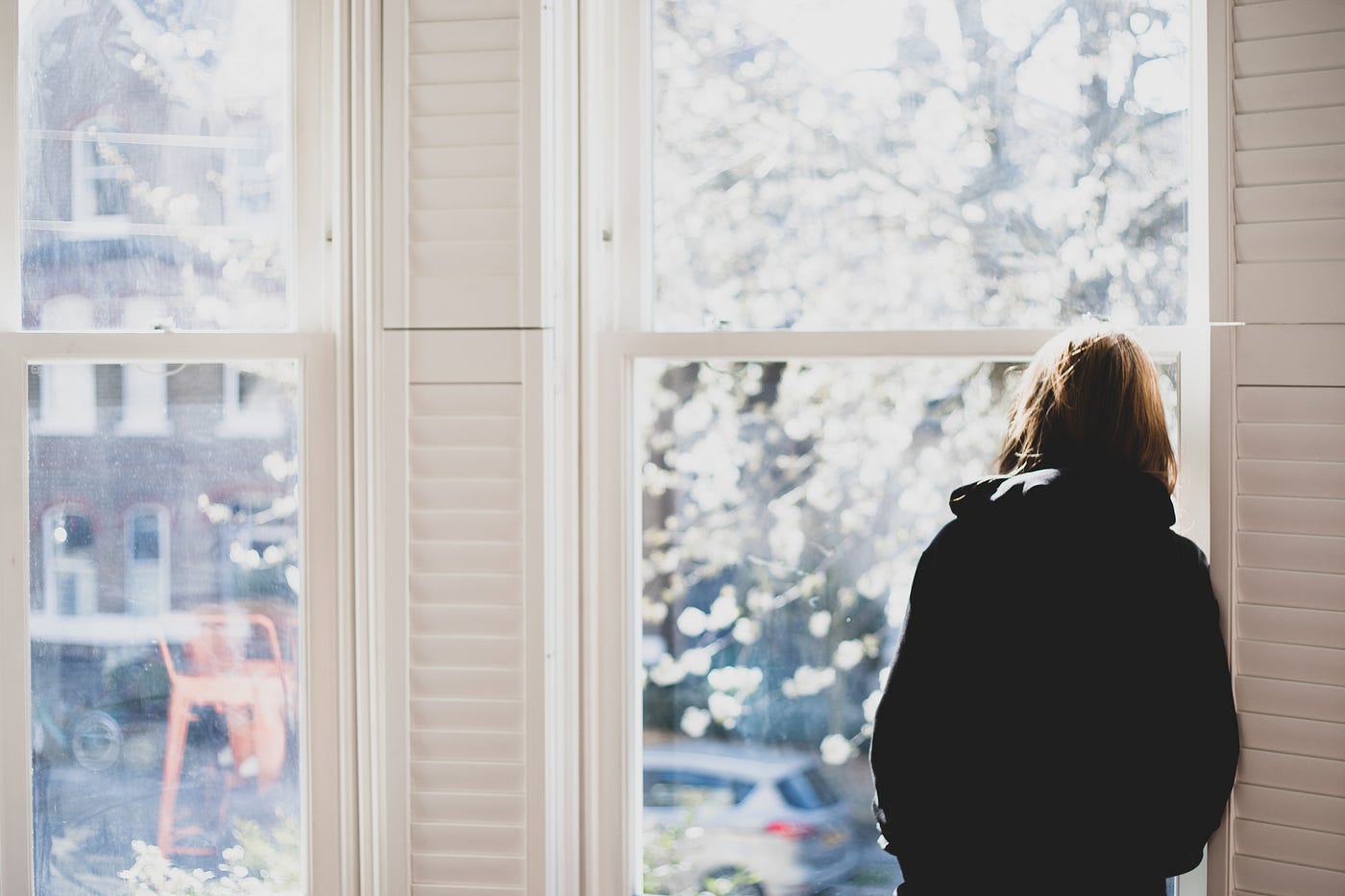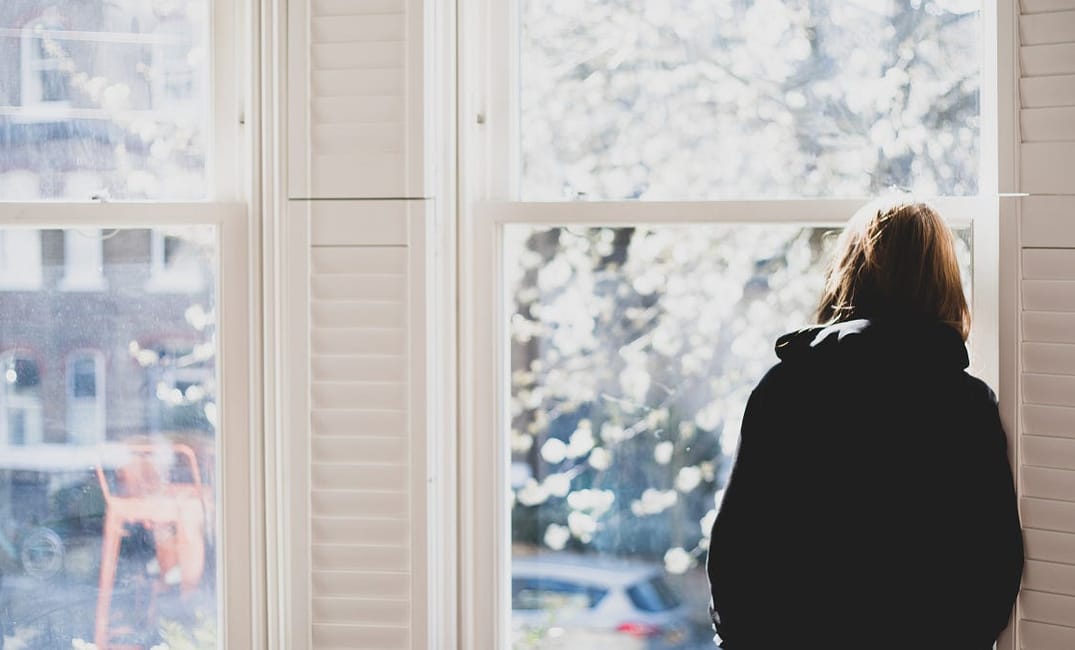
Lately, once a week calls with your parents may have turned into daily video chats. At the very least, you may be checking in with them more — both to ensure they’re okay and to find comfort of your own.
When we’re sick, when we’re anxious, and when shit really hits the fan — like right now — we seek out our parents because they’re the ones that make us feel that everything is going to be okay. It’s biological to want them in times of crisis.
That is, if you’re lucky. Many don’t have that option, either due to unhealthy relationships with their families, or because our parents are no longer here.
I belong to that latter group, to what I call the “shittiest club,” where membership dues are paid with the premature death of those who created us. And being in that club adds an additional layer of surrealism and suck to something as scary as a global pandemic.
Sign up for The Bold Italic newsletter to get the best of the Bay Area in your inbox every week.
I lost my mother 11 years ago when I was 23 and my father three years ago. Both of my parents died in sudden — and what most would consider traumatic — ways. My mom was an opioid addict, and she finally reached a point in her disease where she couldn’t endure the pain that was so deeply embedded within her. Her suicide has its handprints on my life in more ways than I can count and will likely be the most profoundly life-altering event that I’ll ever endure.
Years later, my otherwise healthy dad had a freak accident during our Christmas dinner, which rendered him on life support. I was the only child in the room with him when he left this world (translation: more trauma). To this day, the “this wasn’t supposed to happen” thoughts surface when I think about my parents, and examine the impact of their absences as I move through life.
Within the confines of my brain, I constantly assure myself that this isn’t everyone’s normal, but it’s my normal. Birthdays, Mother’s Day, Father’s Day, Christmas, and a litany of other days are filled with a certain void that cannot be filled.
My mom was a teacher in Los Angeles County for almost 30 years. Growing up, I remember her making phone calls to her students’ parents, alternating between English and Spanish, keeping them abreast of their child’s progress in her classes. She was the most thoughtful woman I’ve ever met, though at times her addiction rendered her incapable of parenting at an ideal caliber.
When she was present and above water in the thick of her addiction, she provided my sister and me with the utmost care, assuaging any anxieties, discomfort, or any fear that we harbored.
My dad was a first-generation union guy that worked at a linen plant for decades. He, too, had a way of mitigating the scariness of the world, though in a different manner. He did so through humor, understanding, and compassion. He was jovial and lighthearted, and he leveraged those qualities to tell me, “Mija, everything is going to be okay,” without explicitly using those words very often. My dad had his vices as well, and those were not without consequence to our family or my upbringing.
Despite all of my parents’ faults, what I’ve wished for most over the past few weeks is the love and the care with which they enveloped my sister and me during times of hardship.
In the time since their deaths, I’ve learned to cope with fear and adversity with the help of my chosen family and thousands of dollars (well) spent in therapy. But it’s not easy, and that instinct to seek out your parents doesn’t disappear even after they’re gone.
I’ve been plagued with anxiety since childhood and have endured so many panic attacks they almost feel routine. On numerous occasions since my parents’ passing, in the throes of an episode where I found it hard to breathe or was paralyzed with irrational fear, I instinctually thought about calling my mom or dad. The thought is fleeting because that obviously isn’t possible. But it’s instinct.
For most of us, the care that we feel from our parents is something we become accustomed to growing up, and something that lasts long into adulthood. A parent’s love is something that is so deeply rooted within us that we grow to expect it to always be there. It isn’t permanent though, because even if we have the best parents in the world, they’re mortal, and will eventually leave us.
My parents weren’t doctors or epidemiologists. They weren’t statisticians that could explain models of disease spread and the flattening of curves. They weren’t nurses that could tell me when my hypochondriac tendencies outweighed logic. They were just my parents, and they’re not here anymore. And that’s hard.
I’m able to easily imagine the measures my parents would be taking to comfort me, and what their attempts to put my mind at ease would look like. A care package from my mom filled quarters for laundry, boxed cereal, socks, and a handwritten note. A phone call from my dad rife with jokes, but at the end, insisting that I take care of myself and telling me how proud of me he is for no reason at all.
Tangled in my parents’ absence lies one of the few (albeit complicated) benefits of being a member of the shittiest club during times like this. My sister and I have discussed it briefly, though to acknowledge it feels taboo and evokes a certain element of guilt. With our paid membership dues, we’re afforded the luxury of having already lost our parents. We don’t have to fret over every trip they make to the grocery store, and we don’t have to insist that they wear a mask or gloves when they go to work on a daily basis. We don’t have to check in to ensure they’re honoring social distancing, and above all, we don’t have to worry about adding their names to the list of victims this disease claims. We’ve paid our dues. Our parents are gone, and we’re absolved of that worry, for better or worse.
I also understand all too well that certain family matters can plague the relationships we have with our parents, and not everyone has mothers and fathers who serve as sources of love, security, and compassion. There were times in my adulthood when I felt that prioritizing my own emotional safety meant keeping my parents at arm’s length, though as they aged, I was often wracked with guilt for doing so.
Whatever feelings come to mind when you think of the two humans that created you, I simply challenge everyone with parents still here to reflect on what, if any, support you can provide one another in this unsettling landscape. It is my hope that if you’re able to, that you take advantage of the time that you have with your parents. The window of time that they’re here with us is shorter than we think.







